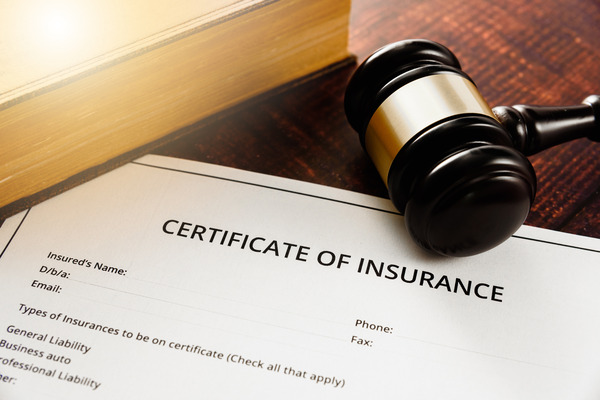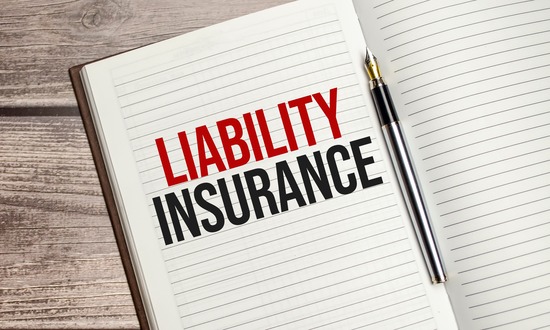Running a small construction business? Insurance is crucial. Let’s explore key aspects from a general contractor’s viewpoint.
1. Know Your Risks:
Understanding risks is vital. Assess potential hazards on-site and off. Identify weak points to safeguard against potential mishaps.
2. Liability Insurance:
Cover your bases with liability insurance. This shields you from lawsuits and covers damages to third parties. It’s a safety net for unforeseen accidents.
3. Worker’s Compensation:
Protect your team with worker’s compensation. It ensures financial support in case of injuries on the job. This keeps morale high and fosters a secure work environment.
4. Builder’s Risk Insurance:
Construction projects are prone to various risks. Builder’s risk insurance covers damages to the building during construction. It’s a shield for the ongoing project.
5. Property Insurance:
Safeguard your tools, equipment, and property. Property insurance covers losses due to theft, fire, or natural disasters. It’s a smart investment to protect your assets.
6. Commercial Auto Insurance:
Construction involves constant movement. Ensure your vehicles are covered with commercial auto insurance. This protects against accidents on the road, securing your transportation assets.
7. Umbrella Insurance:
An additional layer of protection is never redundant. Umbrella insurance extends coverage beyond your primary policies. It’s a safety net for unexpected, high-cost incidents.
8. Contractual Risk Transfer:
In contracts, allocate risk responsibility. Clearly outline who bears specific risks. This prevents disputes and ensures a smooth project flow.
9. Regular Policy Reviews:
Policies evolve. Regularly review your insurance policies. Ensure they align with your business growth and project requirements. Adaptation is key in the dynamic construction landscape.
10. Communication with Insurer:
Establish open communication with your insurer. Keep them updated on project changes and risk assessments. This ensures your policies remain relevant and effective.
11. Budget for Insurance:
Include insurance costs in your project budget. It’s a proactive approach. Accurate budgeting prevents financial strain and ensures comprehensive coverage throughout the project.
12. Education and Training:
Equip your team with safety training. Educated workers contribute to a secure work environment. This minimizes the likelihood of accidents, benefiting both your team and your insurance premiums.
13. Record Keeping:
Maintain meticulous records. Document safety measures, incidents, and training sessions. This serves as evidence in case of disputes and streamlines the claims process.
14. Understand Exclusions:
Comprehend policy exclusions. Know what your insurance doesn’t cover. This awareness allows you to take additional measures or seek supplementary coverage where necessary.
15. Emergency Response Plan:
Prepare for emergencies. Have a response plan in place. This proactive approach minimizes damage and ensures a swift recovery in case of unforeseen events.
16. Professional Advice:
Consult with insurance professionals. Their expertise helps tailor policies to your specific needs. A customized approach ensures comprehensive coverage without unnecessary expenses.
17. Financial Stability of Insurer:
Choose insurers with a solid financial standing. This guarantees their ability to fulfill claims. A financially stable insurer provides peace of mind during projects.
18. Regulatory Compliance:
Stay compliant with regulations. Non-compliance can void your insurance. Understand and adhere to industry standards to maintain coverage integrity.
19. Network with Peers:
Connect with fellow contractors. Share experiences and insights. Learning from others’ insurance strategies can enhance your own risk management practices.
20. Documentation for Claims:
In case of a claim, documentation is key. Thoroughly document damages, incidents, and communications. This speeds up the claims process and ensures fair compensation.
21. Cybersecurity Insurance:
In the digital age, protect against cyber threats. Cybersecurity insurance guards against data breaches and cyberattacks. Safeguard your business from modern risks.
22. Environmental Liability Insurance:
Construction impacts the environment. Environmental liability insurance covers damages caused by your operations. It’s an eco-conscious choice for responsible construction practices.
23. Subcontractor Insurance Verification:
Ensure subcontractors have adequate insurance. Verify their coverage to avoid potential liabilities. This precautionary step safeguards your project from unforeseen subcontractor issues.
24. Adequate Coverage Limits:
Determine optimal coverage limits. Adequate coverage prevents underinsurance risks. Assess potential liabilities and choose coverage that aligns with your business scale and project magnitude.
25. Flexibility in Policies:
Opt for flexible policies. Construction projects vary. Flexible policies adapt to project nuances, providing tailored coverage. This agility is crucial in the dynamic construction environment.
26. Legal Assistance:
In complex situations, seek legal advice. Legal professionals can help navigate intricate insurance terms and handle disputes. A legal perspective ensures you’re well-equipped in challenging scenarios.
27. Collaborative Risk Management:
Involve your team in risk management. Foster a culture of safety awareness. Team collaboration enhances overall risk mitigation efforts on the construction site.
28. Timely Premium Payments:
Pay premiums on time. Timely payments ensure continuous coverage. Avoid lapses that may leave your business exposed to potential risks.
29. Performance Bonds:
For added assurance, consider performance bonds. These guarantee project completion. Performance bonds enhance your credibility and instill confidence in clients and stakeholders.
30. Vendor Insurance Verification:
Before engaging vendors, verify their insurance. This shields you from potential liabilities arising from vendor actions. Due diligence ensures a secure partnership.
In conclusion, insurance is the backbone of a small construction business. From liability coverage to worker protection, each policy serves a crucial role. By prioritizing risk management, staying informed, and adapting policies to your evolving needs, you build a robust shield against unforeseen challenges. Collaborate with industry peers, seek professional advice, and foster a culture of safety within your team. With a comprehensive insurance strategy, your small construction business can thrive in the dynamic and demanding construction landscape.












